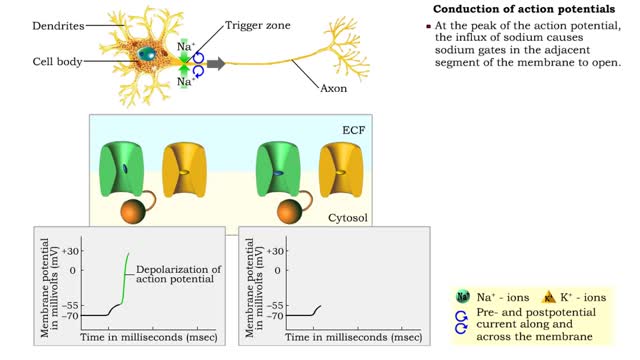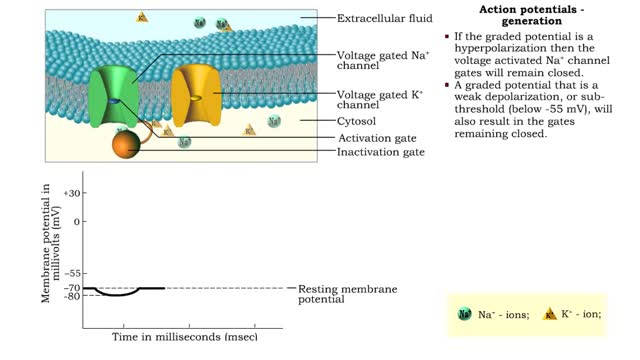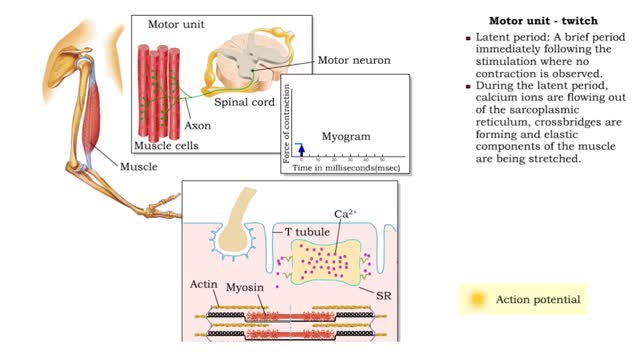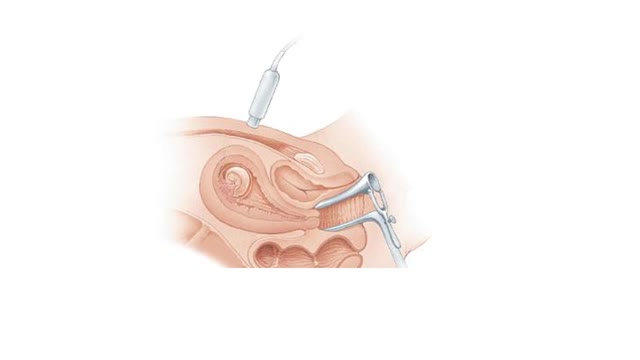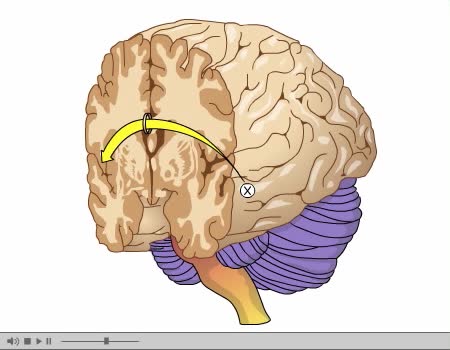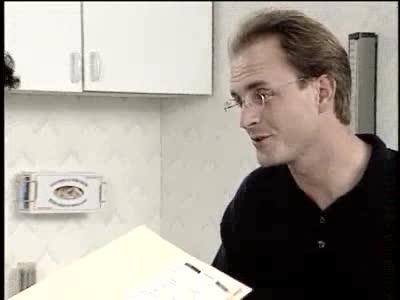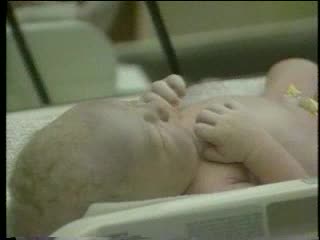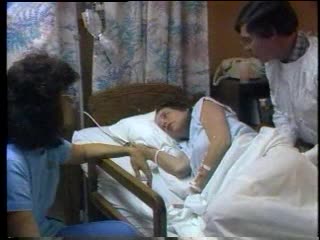Search Results
Results for: 'refractory period'
Conduction of action potentials
By: HWC, Views: 11797
• Action potentials must be rapidly conducted over long distances in order for the nervous system to communicate with other cells. • Propagation of an action potential uses processes similar to those that generate the potential at the trigger zone. • a When a graded potential reaches ...
Action potentials - electrical characteristics and generation
By: HWC, Views: 11493
• An action potential is the nervous impulse or signal for long distance communication. Each action potential is generated at the cell's trigger zone. • Action potentials are considered an all-or-nothing phenomena because they are either generated or not. • The generation of an action...
Muscle Twitch and Muscle Tension - Motor unit size and force
By: HWC, Views: 11915
• A motor unit is a group of muscle cells controlled by a single neuron. • A stimulus of sufficient intensity will cause all the cells in the motor unit to contract. • A single contraction, caused by a single action potential, is called a muscle twitch. • Latent period: A brief per...
Amniocentesis and CVS Animation
By: HWC, Views: 8561
Amniocentesis and chorionic villus sampling (CVS) are prenatal diagnostic tools. In amniocentesis, which can be performed as early as 14 weeks into the gestation period. A syringe needle is inserted through the abdominal and uterine walls to withdraw some amniotic fluid. The fluid contains...
Studying the Left and Right Brain Independently
By: Administrator, Views: 14919
A seizure, technically known as an epileptic seizure, is a period of symptoms due to abnormally excessive or synchronous neuronal activity in the brain. Outward effects vary from uncontrolled shaking movements involving much of the body with loss of consciousness (tonic-clonic seizure), to shakin...
By: Administrator, Views: 14580
Chronic kidney disease (CKD) is the presence of kidney damage, or a decreased level of kidney function, for a period of three months or more. Kidney disease can range from mild to severe and in some cases, lead to kidney failure.
Labor and Delivery - Placenta Delivery
By: Administrator, Views: 528
Placental expulsion (also called afterbirth) occurs when the placenta comes out of the birth canal after childbirth. The period from just after the baby is expelled until just after the placenta is expelled is called the third stage of labor. The third stage of labor can be managed actively wi...
Labor and Delivery - Transition
By: Administrator, Views: 404
The last part of active labor – when your cervix dilates from 8 to a full 10 centimeters – is called the transition period because it marks the shift to the second stage of labor. This is the most intense part of labor. Contractions are usually very strong, coming every two and a half to t...
Mendel's Principles of Inheritance (Father of Genetics)
By: HWC, Views: 11393
Gregory Johann Mendel, a monk living in the mid-1800's, is known as the "Father of Genetics" for his experiments with pea plants in the abbey garden. These experiments led him to deduce the fundamental law of genetics. Mendel was an Augustinian friar who entered, in 1843, the Abbey of St. Thom...
Advertisement



